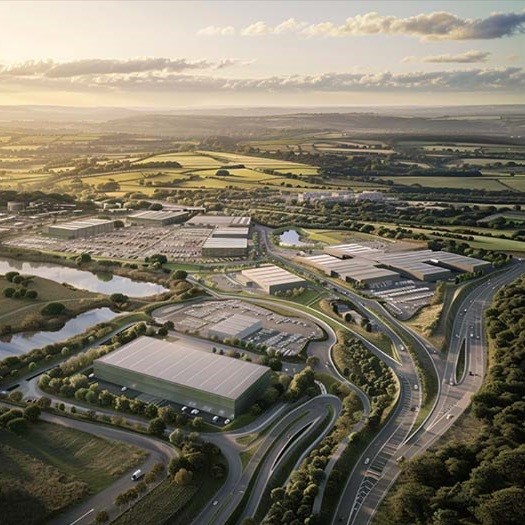
Tata Group’s global battery business ‘Agratas’ has confirmed previous announcements that it will invest £4bn in a brownfield site near Bridgwater in Somerset to make it the UK’s biggest electric vehicle (EV) battery manufacturing facility.
Somerset To Be Centre Of UK’s Green Energy Revolution
Somerset Council has reported that the Agratas factory should create up to 4,000 jobs and many more as part of the supply chain and will, “put Somerset at the centre of the UK’s green energy revolution with the potential to kick-start countywide and regional economic growth and jobs”.
The Leader of Somerset Council described the Agratas EV battery factory plans, which could see Somerset become the UK’s biggest producer of electric vehicle (EV) batteries, as “momentous and of global significance”.
The EV factory will be built on the old Royal Ordnance Factory site, once a major employer in the area until its decommissioning in 2008. It’s been reported that the Agratas factory will be smaller, taking only 50 per cent of the land but should, by the early 2030s (production will begin in 2026), have the capacity to produce 40GWh of battery cells annually – half the EV battery manufacturing capacity for the UK’s automotive sector (enough batteries for 500,000 passenger vehicles). It’s understood that JLR and (not surprisingly) Agratas will be the first customers for the batteries.
Residents
Agratas says it’s informing the thousands of residents around Puriton of its plans via a leaflet through the door, provision of a community WhatsApp channel for progress updates, and an introductory event in the coming weeks.
Agratas – Clean And Green Operations
Agratas says the “world-class gigafactories” it’s building in India and now the UK unlock green growth opportunities for global customers, that it has a “sustainability-first approach” and that its operations are “accelerating the global transition to net zero.”
Agratas points out that it’s not just the contribution of the product that will help with the climate crisis. It’s also keen to highlight how its factories (like the one to be built in Puriton, Somerset) are designed to be powered by clean sources of electricity and should include a purpose-built renewable energy plant, thereby supporting its goal of 100 per cent clean power across all its operations. In terms of a nearby (renewable) energy plant, it’s worth noting that the Somerset factory site is only 15 miles from Hinkley point nuclear power station.
Challenges
In addition to other challenges, The United Kingdom’s ambition to be a leader in the electric vehicle (EV) market has been somewhat hampered by its lack of domestic battery manufacturing facilities (known as gigafactories). This gap has posed significant challenges and implications for the UK’s automotive industry and its transition to electric mobility, e.g. supply chain vulnerability, competitiveness and investment attraction, job creation and economic growth, meeting its environmental targets, and more.
The confirmation that a major EV battery gigafactory will be sited here has, therefore, been greeted enthusiastically by the UK government and those involved in the EV industry.
What Does This Mean For Your Organisation?
Building an EV battery gigafactory in Somerset in the UK is likely to bring many important benefits. These include countrywide and regional economic growth and jobs – 4,000 new high-skilled green tech jobs. Also, the fact that Agratas will work with local and regional partners (e.g. Somerset Council, Bridgwater and Taunton College, and the wider Gravity Smart Campus) will mean bespoke education and training programmes with the promise of high-value local jobs for local people in the future. Also, the UK’s ambition to be a major player in the EV market will be well-served by having a battery factory here, and this will boost EV production in the UK, attract manufacturers and investment, and boost the economy.
On the green and sustainability front, the fact that Agratas has a sustainability-first approach and plans to use clean sources of electricity are clearly likely to be attractive. For residents in the Bridgwater area, which also has the first in a new generation of nuclear power stations (Hinkley Point C) being built just a few miles down the road, the EV battery site will contribute even more to the massive boost that the local economy has received in recent years.
All that said, for many people in the UK, there is still the downward pressure of a cost-of-living crisis taking priority over decisions to purchase expensive electric vehicles that don’t yet have anything more than what many would describe as a barely adequate charging network in place. Also, despite the EV factory’s sustainability and environmental focus, it should be remembered that there is still an environmental cost being paid in the mining, production, and transportation of materials including lithium, cobalt, and nickel for EV batteries, not to mention the scarcity of such materials.




